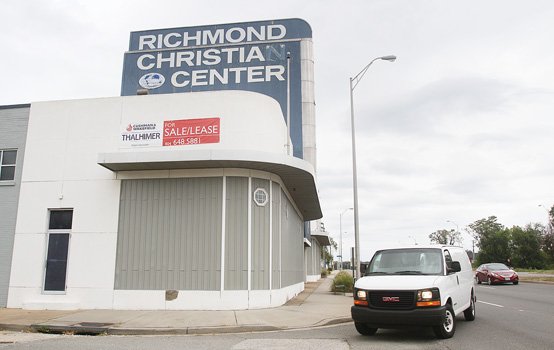Center ordered to sell Cowardin Avenue parcel
Jeremy M. Lazarus | 10/14/2014, 6 a.m.

Pastor Stephen A. Parson has spent more than 16 months fending off a lender’s attempt to foreclose on the current South Side home of the Richmond Christian Center he founded more than 30 years ago.
He has tried to sell the church’s property in the 200 block of Cowardin Avenue and twice filed for bankruptcy to block Foundation Capital Resources of Springfield, Mo., from seizing and selling the property to cover a defaulted loan.
But Pastor Parson’s efforts to forestall the loss of the former car dealership the church bought and converted into a sanctuary in the late 1980s is coming to an end.
Last week, U.S. Bankruptcy Court Judge Keith L. Phillips ordered Pastor Parson to sell the property by Nov. 21 or have the disposal handled by a bankruptcy court trustee.
The judge also authorized Pastor Parson to receive two more salary payments of $5,000 and ordered the church to pay a total of $50,000 in two installments to FCR by Nov. 1 or have a trustee take control of the church’s property.
The battle over the property reflects the decline of a church that once ranked among Richmond’s largest and listed 4,000 members on its rolls. Last Sunday, fewer than 200 people participated in the two Sunday morning services.
The church most recently filed for bankruptcy in November 2013. According to documents filed with the court, the church owes creditors more than $2.1 million, including $76,000 in unpaid city property taxes and $27,600 in unpaid utilities. The church also owes $35,000 to the IRS in unpaid employment taxes.
The bulk of the debt — about $2 million — is owed to FCR. The company loaned $4.4 million to the Richmond Christian Center a few years ago. More than half of the loan has been paid.
In his order, the judge advised Pastor Parson that the sale of the property would need to generate enough money to pay the debt owed to secured creditors.
Otherwise, his son, Stephen A. Parson Jr., might be required to turn over money made from the sale of a parking lot the church formerly owned in the 300 block of Cowardin Avenue to pay the church’s remaining debt.
FCR began its fight to recover the money it lent to the church after discovering that Pastor Parson in 2011 secretly sold the lot for $180,000 to SP-Five Properties, a company controlled by the pastor’s son who was a trustee of the church at the time.
The sale price was far less than the lot’s assessed value of $1.2 million, according to a suit FCR filed last spring against SP-Five Properties in a bid to recover the property. FCR claims in its suit that the transfer represents a fraudulent attempt to hide or dispose of assets due creditors because it was done less than two years before the church’s bankruptcy filing.
However, a week before FCR could get the suit into court, the son, in turn, sold the lot for $850,000 to the Virginia Beach-based Mini Price Storage, which is now building a new storage facility on the property.
Judge Phillips ordered the younger Mr. Parson to keep the money in the bank during the litigation to determine if the sale proceeds must be returned to the church.
During testimony at a hearing, the judge was informed that at least one party had offered $2 million for the church’s property, which, after agent commissions and other fees, would have left about $1.8 million.






